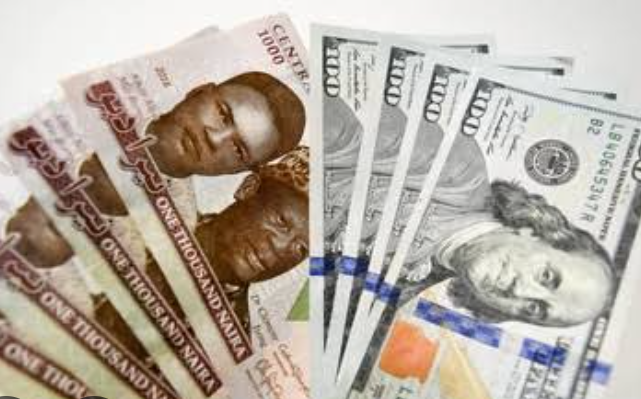By Kayode Sanni-Arewa
For many Nigerians, especially those engaged in foreign trade, travel, and investments, there is a nagging concern for the dollar-naira exchange rate. The black market rate for dollars to naira, parallel or Aboki FX as some know it will most of the time give different rates from the official CBN rates. At this point, the exchange rate was still moving up and down. The current dollar to naira exchange rate today, July 31, 2024, what drives the rate, and how all these affect the economy of Nigeria are discussed in this article.
*Dollar to Naira Today Black Market.*
*Current Black Market Dollar to Naira exchange rate.*
Buying Rate: N1595
Selling Rate: N1600
*Official CBN Rates*
Buying Rate: N1684
Selling Rate: N1685
*Understanding the Black Market for Forex*
*What is the Black Market?*
The black market refers to unofficial exchange channels where currencies are traded without government regulation. This market often provides more competitive rates due to the high demand and limited supply of foreign currencies.
*Why Do People Use the Black Market?*
People turn to the black market due to:
*Favorable Rates:* Often higher than official rates.
*Accessibility:* Easier to obtain foreign currency without stringent regulatory requirements.
*Factors Influencing Black Market Rates.*
Economic Policies Government decisions on interest rates, inflation control, and forex regulations by the CBN directly affect the naira’s value. Policy adjustments aimed at stabilizing the naira impact the exchange rates.
*Supply and Demand*
The availability of foreign currency versus its demand significantly influences exchange rates. A shortage of foreign currency or high demand leads to naira depreciation.
*Political Stability* Geopolitical events and internal political stability affect investor confidence.
Political unrest or uncertainty can cause the naira to depreciate, while stability strengthens it.
*Global Economic Conditions*
Global market conditions,such as oil prices, international economic trends, and global inflation rates, influence the naira’s value. A significant drop in oil prices, for instance, negatively impacts Nigeria’s economy.
*Comparing Dollar to Naira Official and Black Market Rates*
*Why the Disparity?*
Several factors contribute to the disparity:
*Supply and Demand:* Limited availability in the official market drives people to the black market.
*Regulatory Restrictions:* CBN imposes limits on forex availability, leading to higher black market rates.
*Economic Instability:* Fluctuations in oil prices and inflation prompt people to seek more favorable black market rates.
*Impact on the Economy*
High black market rates can:
*Inflation:* Increase costs for imported goods.
*Investment:* Deter foreign investment due to economic instability.
*Trade:* Benefit exporters while imposing higher costs on importers.
*Using the Parallel Market Safely*
*Tips for Transactions*
*Verify Rates:* Check reliable sources like Aboki FX for the latest rates.
*Reputable Dealers:* Engage with trusted Bureau De Change operators to avoid scams.
*Pounds and Euro to Naira Exchange Rates*
*Pounds to Naira (CBN Rates)*
Buying Rate: ₦2,139
Selling Rate: ₦2,140
*Euro to Naira (Black Market Rates)*
Buying Rate: ₦1,778
Selling Rate: ₦1,779
*Geegpay and Grey Online Exchange Platforms*
*Geegpay Rates*
EUR (€): Buying at ₦1,690.03, Selling at ₦1,695.55.
GBP (£): Buying at ₦1,950, Selling at ₦1,965.
USD ($): Buying at ₦1,504, Selling at ₦1,570.
*Grey Rates*
EUR (€): Buying at ₦1,640.03, Selling at ₦1,719 GBP.
(£): Buying at ₦1,902, Selling at ₦2,015.
USD ($): Buying at ₦1,550, Selling at ₦1,570
*FAQs on Dollar to Naira Exchange Rate.*
How much is a dollar to naira today in the black market? The buying rate is N1588, and the selling rate is N1590 as of July 29, 2024.
*Why does the black market offer higher rates than the CBN?* The black market rates are driven by supply and demand dynamics, regulatory restrictions, and economic instability.
*Is it legal to trade forex in the black market?* While the CBN discourages it, many engage in the black market due to the unavailability of sufficient forex through official channels.
*What are the risks of trading in the black market?* Risks include fluctuating rates, potential scams, and the legal gray area of such transactions.
*Can the CBN influence black market rates?* The CBN can influence these rates through monetary policy, forex
interventions, and regulatory measures, but direct control is limited.
*How often do black market rates change?* Rates can change on a daily or even multiple times per day, depending on market conditions and economic news.
*Conclusion on Dollar to Naira Black Market Rate Today.*
The black market dollar-to-naira exchange rate represents an interaction of intricate components: economic factors, regulatory frameworks, and market dynamics. It’s a reality for quite a good number of Nigerians who need forex, and this also highlights the depth and scope of the challenges and opportunities Nigeria has encountered in its economic landscape. Knowledge of these rates and the underpinning determinants is also quite instrumental in making decisions related to finance.
*Kerosene Sold To Nigerians At ₦1,555 Per Liter In June – NBS*
The National Bureau of Statistics has said that Nigerians paid an average of ₦1,555 per liter for kerosene in June as against what it sold for in June 2023.
The NBS, in its National Household Kerosene Price Watch Report on Tuesday, said the current price of kerosene increased from ₦1,450 in May by 7.22 percent.
On the report, a litre of kerosene sold at ₦1,236 per liter in June 2023. It increased by 25.73 percent at that price.
“The average retail price paid by consumers for a liter of Household Kerosene, HHK, in June 2024 was ₦1,555.11, showing an increase of 7.22% over ₦1,450.35 recorded in May 2024. Year-on-year, average retail price per liter of the product increased by 25.73% from ₦1,236.91 in June 2023,” it read.
Further analysis showed that in some Nigerian families, the price of cooking product varied from state to state. While, Kaduna, Benue and Zamfara states showed the highest increase in price; Kebbi, Taraba and Sokoto states showed the lowest price increase.

